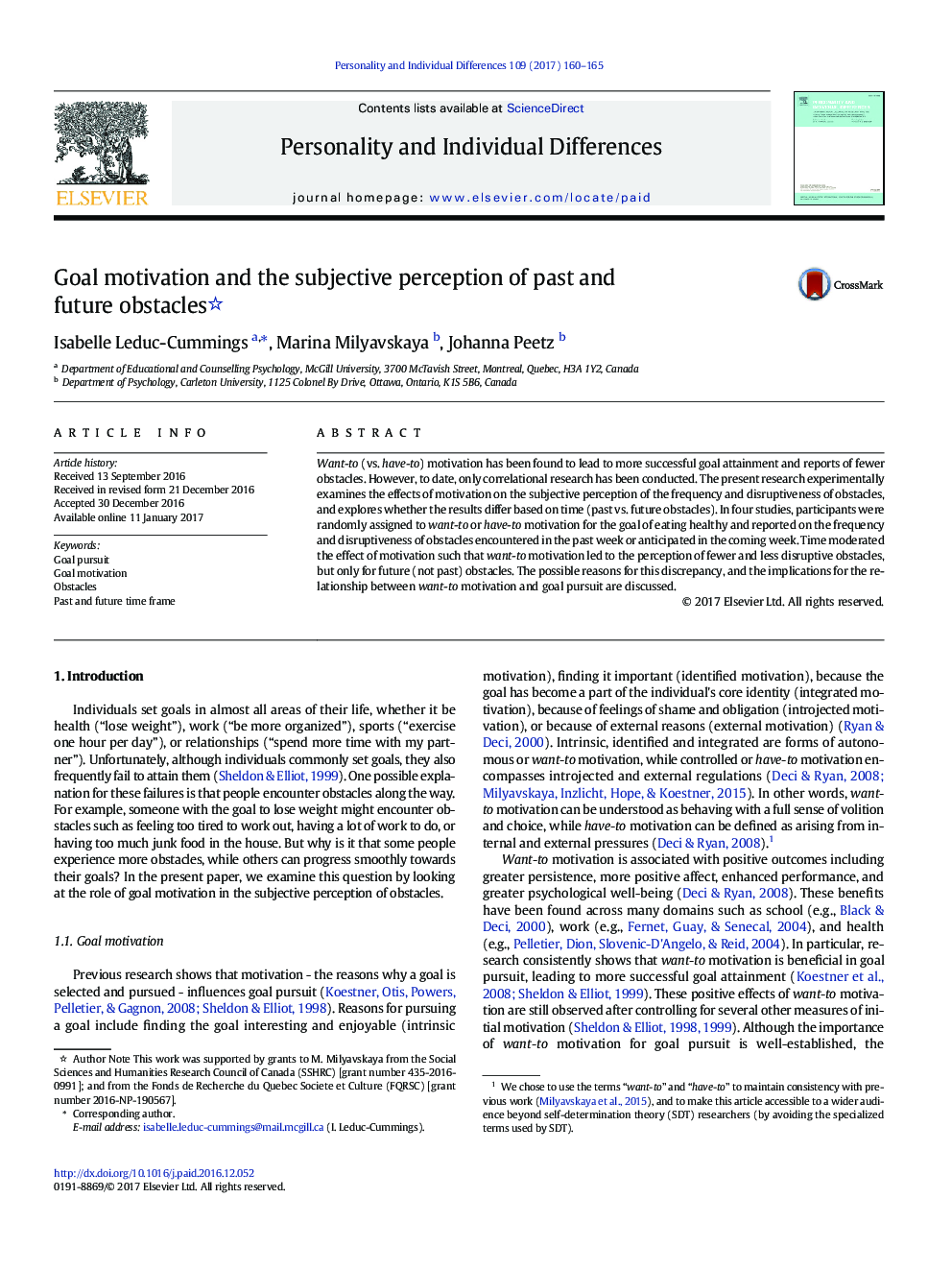| Article ID | Journal | Published Year | Pages | File Type |
|---|---|---|---|---|
| 5036300 | Personality and Individual Differences | 2017 | 6 Pages |
â¢Experimentally tests effect of motivation on the subjective perception of obstaclesâ¢Time moderates the effect of motivation on obstacle perception.â¢Want-to motivation leads to perceiving fewer obstacles in the future, not the past.
Want-to (vs. have-to) motivation has been found to lead to more successful goal attainment and reports of fewer obstacles. However, to date, only correlational research has been conducted. The present research experimentally examines the effects of motivation on the subjective perception of the frequency and disruptiveness of obstacles, and explores whether the results differ based on time (past vs. future obstacles). In four studies, participants were randomly assigned to want-to or have-to motivation for the goal of eating healthy and reported on the frequency and disruptiveness of obstacles encountered in the past week or anticipated in the coming week. Time moderated the effect of motivation such that want-to motivation led to the perception of fewer and less disruptive obstacles, but only for future (not past) obstacles. The possible reasons for this discrepancy, and the implications for the relationship between want-to motivation and goal pursuit are discussed.
